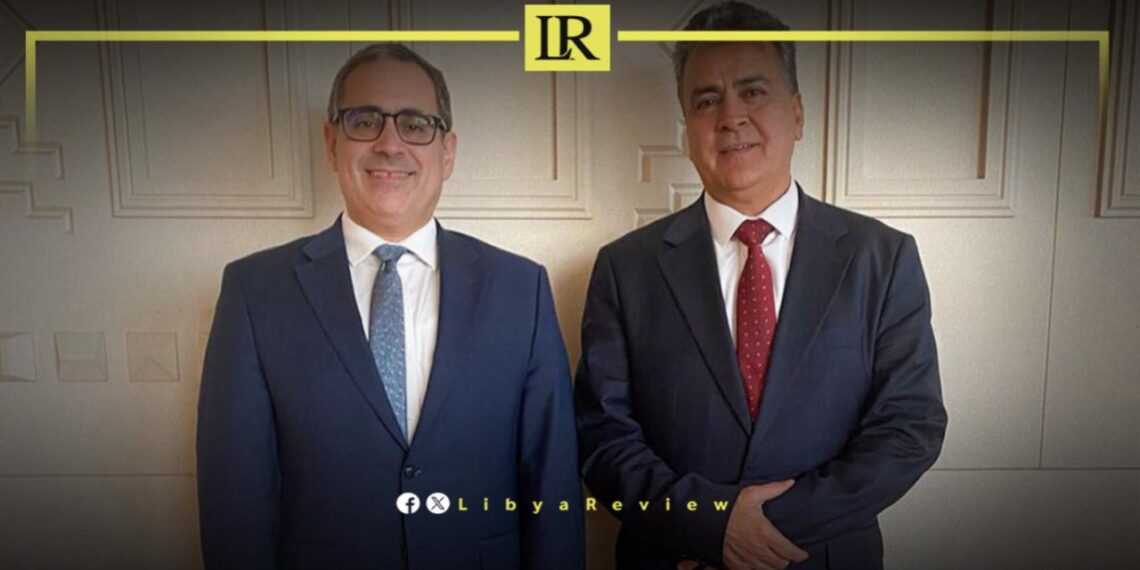On Saturday, the Chargé d’Affaires at the US Embassy in Libya, Jeremy Berndt, emphasized the critical importance of transparent revenue sharing and a cohesive financial policy for achieving economic stability in Libya.
Berndt made these remarks during a meeting with Omar Tantoush, the Deputy and Chairman of the Finance and General Budget Committee in the House of Representatives. The meeting, which took place in Tripoli, was highlighted by the U.S. Embassy in Libya on their “X” (formerly Twitter) account.
“I thank Deputy and Chairman of the Finance and General Budget Committee Omar Tantoush for meeting with me in Tripoli yesterday. Transparent revenue sharing and a cohesive financial policy are essential for achieving economic stability in Libya,” Berndt said, according to the U.S. Embassy.
Libya’s economic landscape has faced numerous challenges since the fall of Muammar Gaddafi in 2011. Despite being rich in oil reserves, political instability, and conflict have severely impacted Libya’s ability to manage and distribute its wealth effectively. The revenue from oil, which forms the backbone of Libya’s economy, has been a contentious issue, with various factions vying for control.
Transparent revenue sharing is crucial for ensuring that all regions and communities in Libya benefit equitably from the country’s natural resources. This transparency helps prevent corruption, fosters trust among different political and regional groups and ensures that revenues are used for the development and welfare of the entire nation.
A cohesive financial policy is essential for the stability and growth of any economy. For Libya, this means creating and implementing policies that manage public finances effectively, control inflation, and promote investment and development. Such policies would help stabilize the economy, attract foreign investment, and rebuild the nation’s infrastructure.


